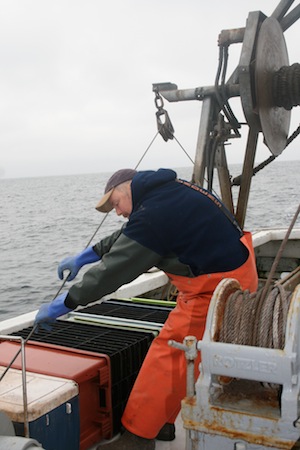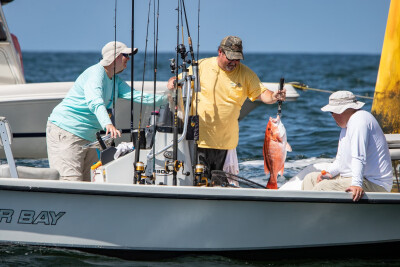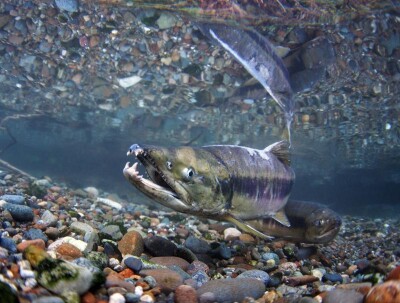In 1623, a group of settlers arrived in what would one day be called New Hampshire, about 100 miles north of where pilgrims had landed three years before in Plymouth, Mass. But these settlers were not fleeing religious persecution. They came here to fish.
The Founding Fishermen came by way of an English land grant given to London fish merchants Edward and Thomas Hilton, and others, who established a fishing colony at the mouth of the Piscataqua River. On the shores, they built racks to dry and salt cod, which was so abundant and so valuable it could lure people across an ocean to catch it.
Four hundred years later, once-abundant cod is in trouble. Stock assessments show populations are not recovering despite conservation efforts. Either 400 years of fishing have taken their toll or other forces like predators and changing conditions in the Gulf of Maine have kept cod numbers down (some speculate they may also be in closed areas).
No matter the reason for cod’s scarcity, fishermen are disappearing here too. When I wrote about a day at sea on one of the state's last groundfish draggers (“Dragging it out,” page 22), I describe my trouble finding the Hampton marina, which is tucked away down a road that starts in the parking lot of a Chinese restaurant and goes through a condominium development.
I mention these details because I think it’s important to note how far this area is from being a fishing community. In the summer, Hampton is a beach resort, and like most of New Hampshire’s tiny coastline, it’s dominated by tourism and second homes, whose owners enjoy the pretty coastline and the state’s lack of income tax.
Most of the boats in Hampton’s marina are recreational boats, and when I went out in December, most of them were shrink-wrapped and perched on land. It was at least easy to spot David Goethel's 44-dragger Ellen Diane since it was the only one with the lights on.
As David (pictured above) says in the story, his is one of only three boats going out now, people are still in their beds when he leaves for the day and on their third cocktail when he comes back to port from the Gulf of Maine, where boats from Maine, Massachusetts and New Hampshire share the historic fishing grounds.
“That’s a community on the water,” David says. “They all fish at the same time, but go home to three different states. On land, they don’t even know I exist.”
Hampton is just a couple towns from where I grew up in Portsmouth, N.H., which is just across the Piscataqua from Maine. With a postcard-pretty downtown, Portsmouth is a lot less blue-collar than it used to be, but it is at least still home to giant scrap and salt piles that irk waterfront condo owners. Portsmouth’s fishing industry has been less fortunate. Its co-op shut down in 2007.
The fishing industry survives on lobster. Most of the state’s commercial fishermen are lobstermen whose resource is so abundant, they’re facing low prices amidst rising prices for bait and fuel. Their catch accounts for 70 percent of the economic value of New Hampshire’s landings, according to a 2009 report.
Speaking of lobster, New Hampshire draggers at least have one advantage over their counterparts in Maine. A bill that would have allowed them to land trawl-caught lobsters in Maine ports was voted unanimously down in committee on Wednesday, which means it will likely also face defeat when it goes before the state Senate and House.
I can see both sides of this controversial measure, but it’s too bad it was voted down without any solutions to keep the dwindling groundfish fleet intact.
It was hard to find a silver lining in this story, but I admire David’s resolve to keep fishing. Not only does he have to contend with regulations that seem almost designed to drive him off the water, but he also suffered near-fatal injuries about three years ago when he fell between his boat the dock. His mobility is still limited, but I don’t think anything will keep him from fishing. It was inspiring to watch that determination. I hope that comes through.







